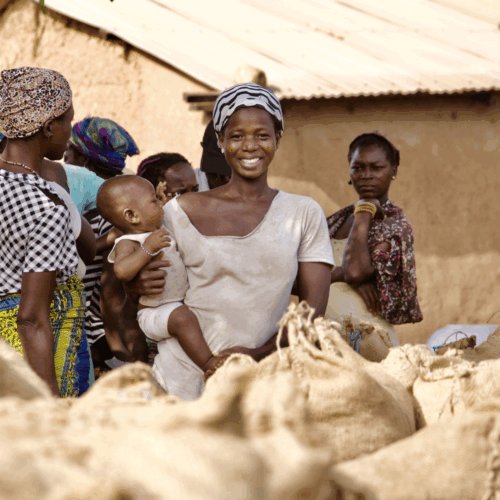The impact of Brexit has been huge for the food and drink industry in the UK, but it has also had a profound effect on its nearest neighbour, the Republic of Ireland.
In recent decades, the European Union has been beneficial for Ireland. Not just because of frictionless, tariff-free trade, but in terms of economic development, cultural ties and politics too.
And in the middle of all this; the delicate border between Northern Ireland and the Republic.
A border which became ever more transparent after the Good Friday Agreement of 1998.
In the aftermath of Brexit, and in order to protect the Good Friday Agreement, there were no new checks on goods passing between Northern Ireland and the Republic.
Instead, the border was placed in the Irish Sea between Northern Ireland and the rest of the UK.
This has had a ripple effect on politics, on trade, and on the food industries in Northern Ireland, the Republic of Ireland, and Great Britain.
So in this episode of the Food Matters Live podcast, we are going to look at all of this from a food industry perspective.
Paul Kelly, Head of Sectors and Director, Food Drink Ireland
Paul leads Food Drink Ireland (FDI) which is the main trade association for the food and drink industry in Ireland.
FDI provides leadership and direction on a number of key strategic issues, including the economic importance and reputation of the sector, sustainability, competitiveness, innovation, trade, skills, regulation and general food chain policy.
He is also an Ibec Strategic Business Lead, one of three Head of Sectors with responsibility for heading up a designated Strategic Business Unit (SBU) within Ibec, Ireland’s largest lobby and business representative group.
His role is to provide support, development and leadership across an SBU and support Ibec the business, in delivering its strategic goals and priorities.
He holds a Batchelors Degree in Electronic Engineering from the University of Limerick and a Masters Degree in Applied Science from University College Dublin.
Michael Haverty, Partner, The Andersons Centre
Michael is a Partner with The Andersons Centre (Andersons), a leading UK agri-food consultancy based in Leicestershire.
Since 2015, he has worked within Andersons’ Business Research team specialising in international trade, market development and agricultural policy issues. He has been involved in numerous projects examining the impact of Brexit on UK and Irish agriculture, particularly regarding Northern Ireland.
He also specialises in examining policy reform and its potential effects on food and farming, including from an environmental perspective. Michael has appeared before several parliamentary committees to give evidence on trade-related issues concerning the agri-food sector. Before joining Andersons in 2015, Michael worked IHS Markit and JFC Agri.
Although UK-based for more than a decade, Michael comes from a grazing livestock farming background in Co. Galway, Ireland and has a BSc (Hons) in Agricultural Economics from Queen’s University Belfast and an MSc in International Agri-Food Marketing from Newcastle University.
In the past, he has also worked with the European Commission. As a result of his experiences to date, he is well-placed to comment on the impact of Brexit and the Northern Ireland Protocol from multiple perspectives.







